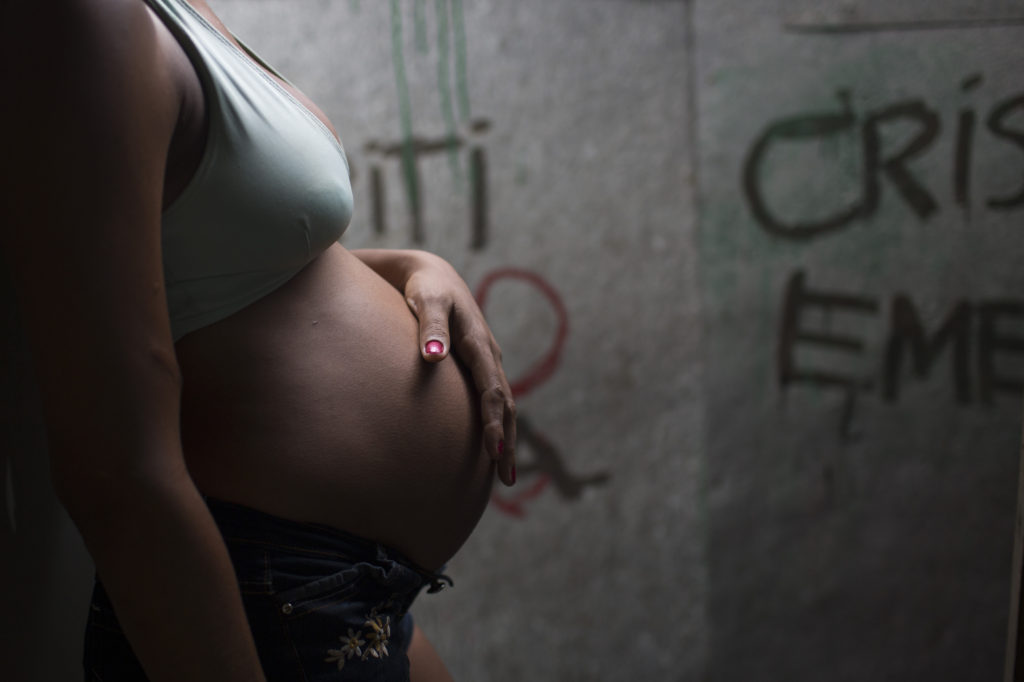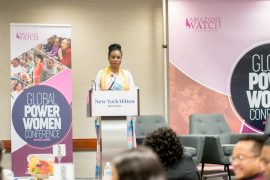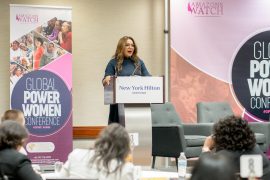Written by Christine Chung
The World Health Organisation advises people living in Zika-affected areas to avoid getting pregnant. But some experts say that suggestion is unrealistic in a region where women’s reproductive rights are severely limited by law.
Recife slum resident Tainara Lourenco stands in the entrance of her home. In Brazil, the Zika epidemic is fueling debate over whether to loosen the country’s strict abortion laws.
As Ebola fades to a distant memory for most people, Zika is taking over as the virus to fear. Every few weeks, it seems, there’s news of the virus reaching another country, and the number of professional athletes pulling out of the Summer Olympics in Rio de Janeiro keeps rising. So far, the advice on how to deal with the virus has focused on avoiding pregnancy. But some experts say that advice is naive, ignoring the reality that in many of the countries’ worst hit by the epidemic, repressive laws make it almost impossible for a woman to control when she gets pregnant.
It’s long been known that Zika – thought to cause mild symptoms in most people who catch it, but which can also result in Guillain-Barré syndrome and microcephaly in babies – is transmitted by mosquitoes. More recently, however, it’s been discovered that the virus can also be transmitted through sex. Until last week, the health community had believed that sexual transmission of Zika only went one way, from men to women. Then, on July 15, the Centers for Disease Control and Prevention and the New York City Department of Health and Mental Hygiene announced the first known case of a woman passing the virus to a man, vastly expanding the potential number of people at risk.
Even as sex becomes a bigger factor in the spread of Zika, the international Zika Strategic Response Plan – led by the World Health Organization (WHO) – still primarily focuses on mosquito eradication, while the WHO addresses the sex vector with the recommendation that men and women living in affected areas “should be informed and orientated to consider delaying pregnancy.” The problem, say critics of the WHO’s advice, is that the region bearing the brunt of the epidemic, Latin America, has some of the world’s most repressive reproductive-health laws. Attention needs to shift from killing mosquitoes to increasing the availability and accessibility of contraception and safe abortions, they say.
“The WHO guidance is missing a human-rights response for women,” says Paula Avila-Guillen, Zika spokesperson for the Center for Reproductive Rights. She wants to see a multifaceted response that encompasses both public health and human rights. “Women can’t talk about condoms if they are not empowered,” she says.
The United Nations High Commissioner for Human Rights, Zeid Ra’ad Al Hussein, has also spoken out on the issue. “In situations where sexual violence is rampant, and sexual and reproductive health services are criminalized, or simply unavailable, efforts to halt this crisis will not be enhanced by placing the focus on advising women and girls not to become pregnant,” he said in a statement in February.
The Zika virus is not new – for over six decades, outbreaks have occurred in Africa, southeast Asia and the Pacific islands – but its arrival in South America is. With no population immunity, vaccines, specific treatments or rapid diagnostic tests, the disease is spreading quickly through the region. It was in May 2015 that the Pan American Health Organization (PAHO) issued an alert about the first confirmed Zika virus infections in Brazil. In February 2016, Zika was declared a Global Health Emergency by WHO, which predicts that by mid-2017, 3 million to 4 million people in the Americas will be infected.
Access to family planning in Latin America varies, but overall abortion is severely limited or outlawed across the region except for Cuba and Uruguay, and certain family planning methods, like emergency contraception, are illegal in many parts. Approximately 22 percent of women of reproductive age across Latin America have unmet needs for effective contraception. The region already has the highest rate of unintended pregnancy in the world – some 55 percent of pregnancies – due to the lack of access to reproductive healthcare and high incidences of sexual violence. Honduras, for example, has the highest rate of rape in the region, but maintains a total ban on abortion and emergency contraception.
The U.N. Working Group on the issue of discrimination against women in law and in practice recently recommended that governments “abolish bans on contraception, including emergency contraceptives, and provide access to affordable modern contraceptives,” noting that restrictive laws “primarily affect women living in poverty in a highly discriminatory way.” According to Avila-Guillen, that recommendation is especially important in the face of the Zika epidemic.
“Reproductive rights are about women choosing the life they would like




